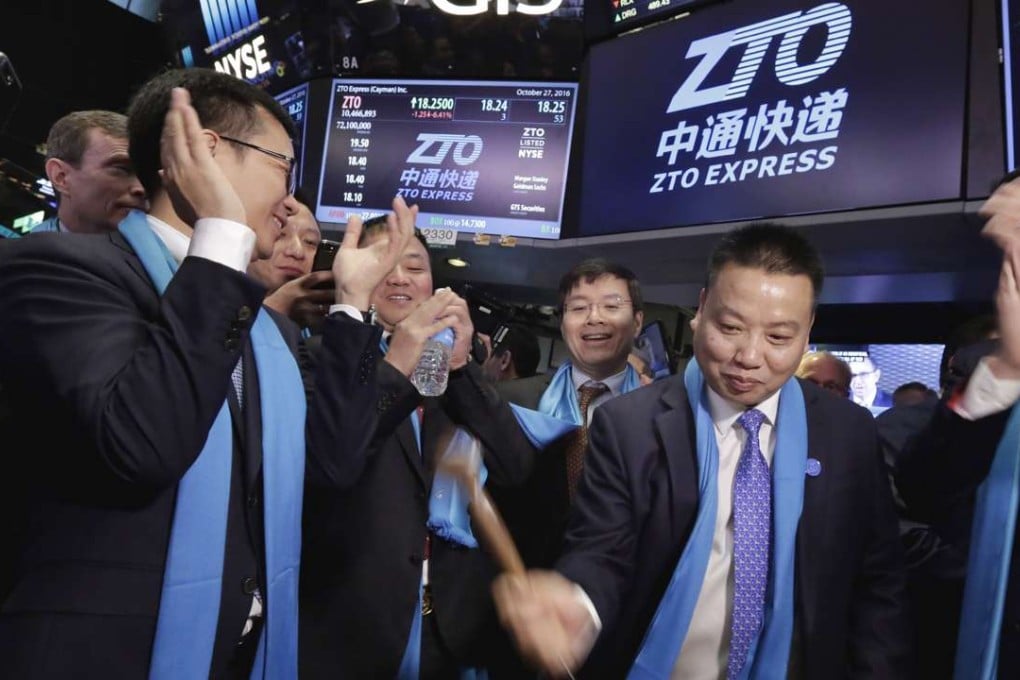Exclusive | ZTO Express drops in New York trading debut, weighed down by a declining market
Delivery company’s CFO says the company will use its IPO proceeds to buy land, expand its network

ZTO Express Inc.’s shares dropped in their trading debut in New York, as the delivery company that gets the bulk of its business from the planet’s largest online shopping platform was weighed down by a weak US equity market.
Shares of the Shanghai-based company began changing hands at US$18.40, below its initial offer price of US$19.50, and closed their first trading day at US$16.57 a share. The Dow Jones Industrial Average gained 0.2 per cent overnight, while the broader S&P 500 Index dipped 0.2 per cent and the Nasdaq Composite Index fell 0.6 per cent.
ZTO raised US$1.4 billion by offering 72.1 million American deposit shares, in the biggest initial public offering of stocks in the US this year.
The delivery service bucked the trend of seeking a backdoor listing on the domestic A-share market where the other powerful players include SF Express, YTO Express, STO Express and Yunda Express as they embark on reverse mergers to gain a listing status.
ZTO will use the IPO proceeds to buy land, expand its network and upgrade facilities to tap surging delivery orders in the world’s second-largest economy as e-commerce drastically changes people’s lifestyle and consumption habits.
